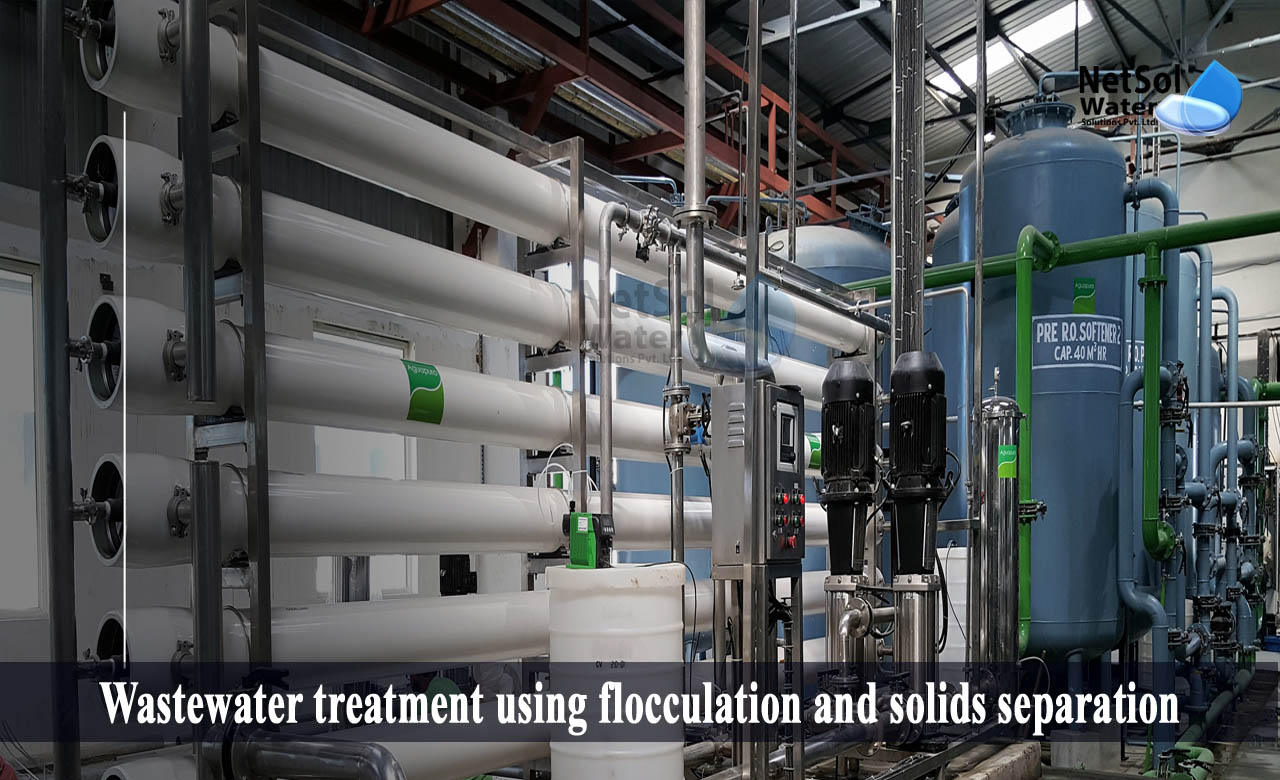How to Wastewater treatment using flocculation and solids separation?
Flocculation is the separation of a solution from a fluid, most commonly the removal of sediment. This process can occur naturally or be induced using flocculants or physical processes.
What are flocculants?
Flocculants are substances that promote the agglomeration of fine particles in a solution, resulting in the formation of a floc, which then floats to the surface or settles to the bottom (sedimentation). This can then be eliminated from the liquid more easily.
Types of Flocculants
Organic and ino?rganic flocculants are available in a variety of charges, charge densities, molecular weights, and forms.
Organic polymeric flocculants are the most commonly used today because of their capacity, to encourage flocculation with a low dosage. However, their lack of biodegradability and the associated dispersion of potentially harmful monomers into water supplies, is causing the focus to shift to more environmentally friendly biopolymers.
The disadvantage of these is that they have a shorter shelf life and necessitate a higher dosage, than organic polymeric flocculants. To combat this, combined solutions are being developed in which synthetic polymers are grafted onto natural polymers, to create tailored flocculants for wastewater treatment that provide the best of both worlds.
What are flocculants used for?
Flocculants are used in a wide range of industries, including civil engineering, earth sciences, and biotechnology, as well as breweries and cheesemakers. However, in the wastewater treatment industry, flocculants are primarily used for solids removal, water clarification, lime softening, sludge thickening, and solids dehydration.
Flocculation with sedimentation is used in both the purification of drinking water, and the treatment of sewage, stormwater, and industrial wastewater. This is why flocculants are widely recognized as water treatment plant chemicals.
How do flocculants work?
Depending on the charge and chemical composition of the solution to be separated, flocculants can be used alone or in conjunction with coagulants.
Coagulants function by destabilizing particles in a stable solution, causing them to aggregate and be bonded together by flocculants. The flocculants bind the particles together to form flocs, which are then separated from the solution after falling as sediment or floating to the surface.
The best combination of organic and inorganic flocculants and coagulants, will be determined by the type of substances being removed from the water, as well as the method of separation employed by the water treatment facility.
What are the differences between flocculants and coagulants?
While, coagulation and flocculation are both common processes used in water and wastewater treatment and purification, they are not the same.
Coagulation is a chemical process that alters the chemical properties of a solution to promote coagulation. Coagulants cause the same process that occurs naturally in milk, when the pH of the liquid changes and the milk solids clump together.
Flocculation, on the other hand, is a physical process that causes particles to floc together, resulting in the formation of a cloud and, later, a precipitate. Flocculants are frequently polymers that cause particles to settle into larger and larger flakes or flocs. Physical agitation or other techniques are frequently required to promote flocculation.
How can we assist?
If you have any questions about wastewater treatments using flocculation, or if you would like to discuss your specific needs, please contact the Netsol Water team right away. Our team is an expert in providing solutions for water and wastewater treatment, and can help you tailor a solution to your specific requirements.
Netsol Water is Greater Noida-based leading water & wastewater treatment plant manufacturer. We are industry's most demanding company based on client review and work quality. We are known as best commercial RO plant manufacturers, industrial RO plant manufacturer, sewage treatment plant manufacturer, Water Softener Plant Manufacturers and effluent treatment plant manufacturers. Apart from this 24x7 customer support is our USP. Call on +91-9650608473, or write us at enquiry@netsolwater.com for any support, inquiry or product-purchase related query.



